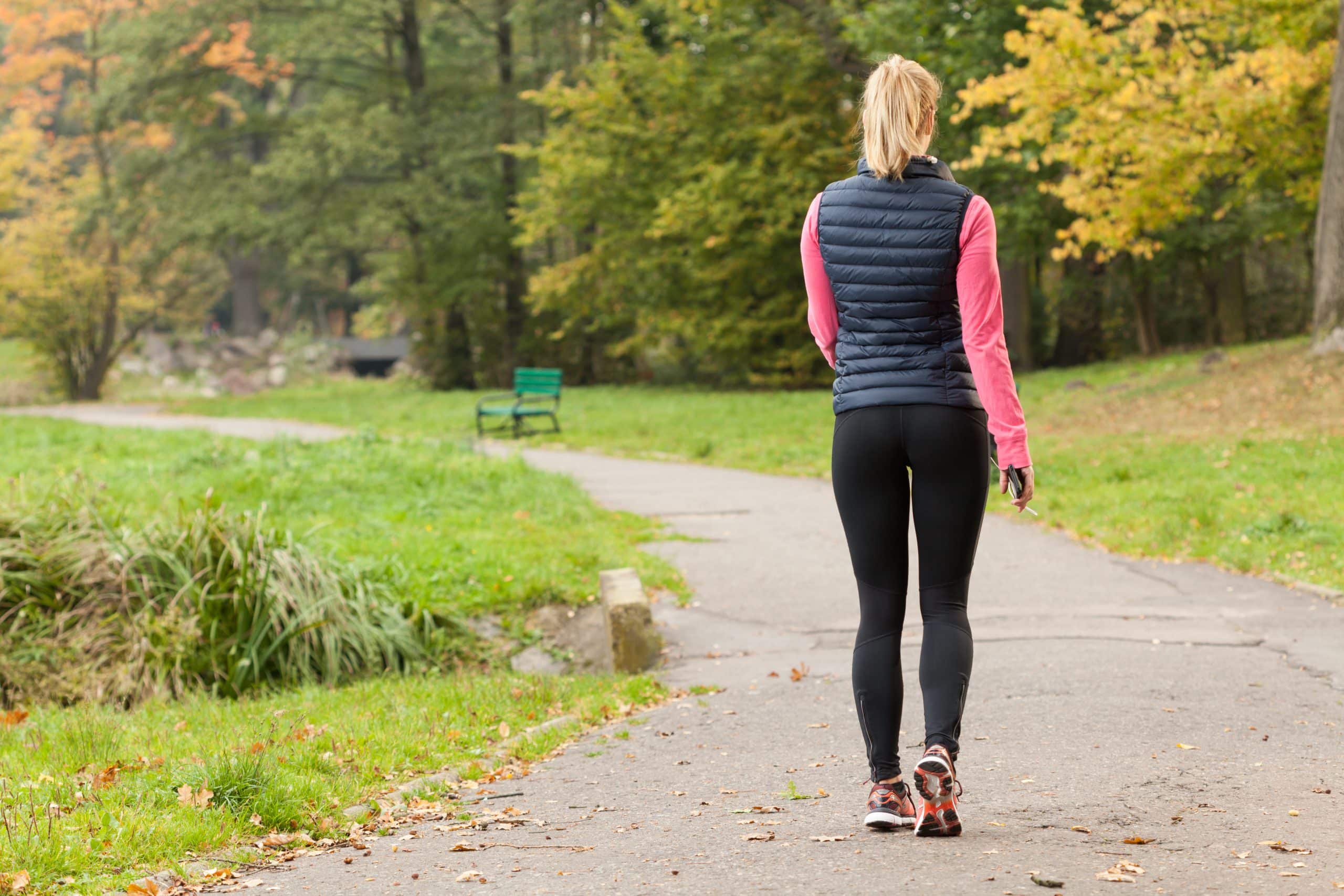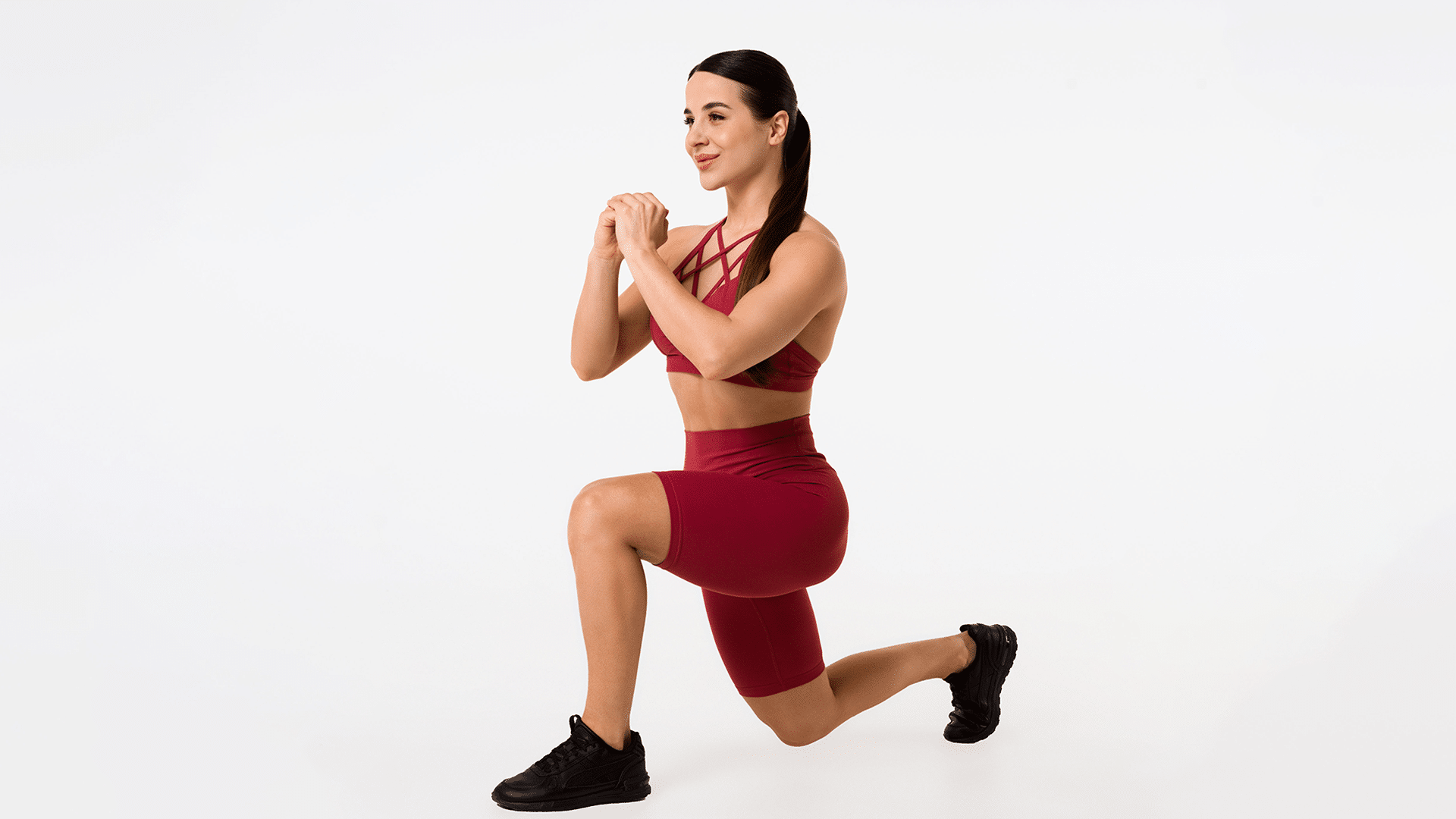Here’s a controversial opinion – exercise doesn’t have to be hard, lengthy, or something straight out of an episode of The Survivor to be effective. That’s right, you heard it here first.
A simple activity like walking could make a significant difference in your health and fitness journey. Even if that walk is only 30 minutes long; provided you do it every day, it could make a huge difference.
In this blog post we’ll tell you exactly why the calories burned walking 30 minutes a day can be the difference between feeling sluggish and energized. Even more importantly, the difference between being overweight and achieving that ideal weight you’ve always wanted.
How Many Calories Do I Burn In a 30-Minute Walk?
On average, a person may burn between 90-200 calories while walking for 30-minutes. Exactly how many calories you burn in a 30-minute walk can vary based on factors such as:
1. Your Weight
Think of your body as a weight you’re moving while you walk. You’ll need some energy; how much you need depends on how much you weigh. So heavier people tend to burn slightly more calories for a given distance.
2. Walking Speed
Your pace determines calorie consumption to a large extent. It’s a determiner of the intensity of your workout. When you walk fast, you burn more. Ideally, a fast paced workout may be more effective at losing weight faster.
3. Distance Covered
The further you walk, the more calories you’ll burn. So in one sense, it’s not just about the time you invest but also the ground you cover.
4. Terrain
Walking uphill or on an uneven surface will burn more calories than walking on a relatively flat terrain, like a road in your neighborhood. To get uphill, you’ll work against increased resistance, which will result in your body utilizing more energy, hence the higher calorie burn.
5. Intensity
If you’re pushing yourself hard (for example, power walking or race walking), you’ll use more energy and hence burn more calories.
6. Body Composition
People with more muscle tend to burn more calories even at rest, so their calorie burn during exercise can also be higher.
Whether you’re looking to simply pep up your fitness routine, jazz up your diet with mouth-watering low-calorie recipes or want to get your act together and significantly drop that number on your scale – BetterMe app has got you covered! Improve your body and revamp your life with us!
How Many Hours of Walking Burn 500 Calories?
Burning 500 calories walking requires you to walk for somewhere between 1.5 and 3 hours, depending on the factors we’ve already discussed.
For someone who weighs 155 pounds, doing a moderate to brisk pace walk will typically burn approximately 525 calories in 1.5 hours (2).
Can You Lose Weight Just By Walking 30 Minutes a Day?
Yes, you can lose weight just by walking 30 minutes a day. If you add 30 minutes of brisk walking to your daily routine you could burn about 150 more calories a day. The more you walk and the quicker your pace, the more calories you’ll burn.
Walking is an effective exercise for fat burning. It helps the body burn off stored fat, including internal belly fat (4). To maximize weight loss, aim for at least 10,000 steps per day, which equates to roughly 5 miles of walking.
However, to see significant weight loss, you should also maintain a balanced diet and engage in other forms of physical activity. Walking alone might not be enough if you have high caloric intake or lead a sedentary lifestyle apart from your 30-minute walks.
Does Walking Burn Belly Fat?
Yes, walking can indeed help you lose belly fat. Regular walking, particularly at a brisk pace, helps burn extra calories, which can lead to weight loss, including reducing belly fat.
It’s important to understand that while you can’t specifically target belly fat for loss (a concept known as spot-reduction), walking can contribute to overall fat loss, which includes belly fat. Walking not only helps with burning calories but also to maintain a healthy metabolism, both of which are crucial for weight loss.
The effectiveness of walking in losing belly fat becomes more pronounced when combined with high-intensity exercises such as running or fast-paced walking. Aerobic exercises like walking have been recognized as an effective way to help reduce belly fat.
That said, just walking for 30 minutes a day might not be enough for you to see significant changes, especially if you’re aiming to lose belly fat. It’s recommended that people engage in at least 150 minutes of moderate-intensity exercise per week, which translates to around 2.5 hours of brisk walking.
In addition, maintaining a balanced diet and a generally active lifestyle will complement your walking routine and help you reach your weight loss goals faster (12).
All The Reasons Why You Should Take Up Walking for 30 Minutes a Day
There are countless reasons why you should incorporate a 30-minute walk into your daily routine. Here are 12 compelling ones:
1. Boosts Cardiovascular Health
Walking is a fantastic cardiovascular exercise. When you walk, your heart rate increases, enhancing blood circulation throughout your body. This helps deliver oxygen and nutrients to your organs and muscles more efficiently. Over time, this can strengthen your heart and lower the risk of heart disease (11).
The “calories burned walking 1 hour” can be significant, which contributes to overall cardiovascular health. By increasing the duration or intensity of your walks, you will burn even more calories, further promoting heart health.
2. Promotes Weight Loss
Walking for 30 minutes a day can contribute to weight loss. The exact amount of weight you lose will depend on several factors, including your weight and the intensity of your walks.
You can increase the “calories burned at walking 45 minutes” or even for an hour by walking at a brisk pace or incorporating some incline into your walks.
“Incline Walking,” in particular, is an excellent way to boost your calorie burn and accelerate weight loss. It increases the intensity of your workout, forcing your body to work harder and burn more calories.
3. Improves Mood
Walking can have significant mental health benefits. Physical activity like walking releases endorphins, also known as the ‘body’s natural mood boosters.’ These chemicals contribute to increased feelings of happiness and well-being (b).
In addition, walking can be a great stress reliever. Whether you’re walking in a local park or just around your neighborhood, taking a break from your daily routine to get some fresh air can help clear your mind and reduce stress levels.
4. Enhances Brain Function
Regular physical activity like walking has been shown to have numerous cognitive benefits. It increases blood flow to the brain, delivering the oxygen and nutrients it needs to perform optimally (3).
Walking may also help improve memory and cognitive function over time. So, not only does a 30-minute daily walk help your physical health – but it could make you smarter, too!
5. Strengthens Bones and Joints
Walking is a weight-bearing exercise, meaning it forces you to work against gravity. This type of exercise can help increase bone density and reduce the risk of osteoporosis and fractures (9).
6. Increases Energy Levels
While it might seem counterintuitive, taking a walk when you’re feeling tired can actually help increase your energy levels. Walking boosts circulation and increases oxygen supply to every cell in your body, helping you feel more alert and energized.
So, the next time you’re tempted to reach for a cup of coffee in the afternoon, consider taking a quick walk instead. You might be surprised at the energy boost you get.
Read more: Calories Burned Walking 1 Hour: How to Calculate the Calories You Burn While Walking
7. Improves Digestion
Regular walking can help maintain a healthy digestive system. It aids in improving gastric mobility, ensuring efficient processing of the food and fluids that we ingest (5).
Walking after meals is particularly beneficial. It helps speed up digestion and stabilizes blood sugar levels, which can prevent energy crashes and cravings later in the day.
8. Reduces Stress and Anxiety
Physical activity like walking has been shown to reduce symptoms of anxiety and depression. It triggers the release of endorphins, often known as the body’s “feel-good” chemicals. This can result in feelings of happiness and euphoria (7).
Furthermore, walking can be a form of moving meditation. When you focus on the rhythm of your steps and your breath, it can help you calm your mind, reducing stress and anxiety.
9. Enhances Sleep Quality
Regular exercise like walking can help improve sleep quality. It contributes to better sleep by regulating your body’s natural sleep-wake cycle, or circadian rhythm (8).
Additionally, physical activity helps reduce insomnia by decreasing arousal, anxiety and depressive symptoms. Therefore, adding a 30-minute walk to your daily routine can help you fall asleep faster and enjoy deeper sleep.
10. Tones Muscles
Walking engages a variety of muscle groups, helping to tone your body over time. When you walk, you use more than 200 muscles, including your glutes, quadriceps, hamstrings, calves, abdominals, and arm muscles.
If you want to add an extra challenge to your walks and tone your muscles even more, consider “Walking With Ankle Weights” or choosing uphill routes. This can increase the intensity of your workouts and help build and tone your leg and core muscles.
11. Boosts Immune Function
Regular walking can boost your immune function, helping your body fight off illnesses. Physical activity helps flush bacteria out of the lungs and airways, reducing your chance of getting a cold, flu, or other illness (6).
Walking also causes changes in antibodies and white blood cells, which are the body’s immune system cells that fight disease. These antibodies or white cells circulate more rapidly, so they could detect illnesses earlier than they might have before.
12. Improves Balance and Coordination
Walking regularly can improve your balance and coordination. With each step, you must maintain your balance, engaging your core and leg muscles.
If you struggle to even flirt with the idea of giving up your favorite foods or working out till your legs give way – BetterMe app is here to breathe a fresh perspective into the way you view the weight loss process! Check out the app and experience the fun side of fitness and dieting with BetterMe!
Frequently Asked Questions
How Can I Burn 1,000 Calories a Day?
While Burning 1,000 calories a day requires a combination of intense physical activity and a healthy diet, it should be approached with caution. You can start by doing HIIT (High-Intensity Interval Training) workouts, which involve short bursts of intense exercise followed by periods of rest or low-intensity recovery.
You should also ensure you’re consuming enough energy to support your individual needs. A calorie deficit can support weight loss, but it’s important not to decrease intake too low.
Does Walking 1 Hour a Day Help Lose Weight?
Yes, walking 1 hour a day can help you lose weight. The amount of calories burned will depend on your body weight and the intensity of your walk. Incorporating inclined paths into your walks can also increase the calorie burn significantly.
Additionally, walking in an outdoor environment may be more beneficial as it has been shown to improve mood and reduce stress levels – both of which can help with weight management (1).
Does a 30-Minute Walk Count As Exercise?
Yes, a 30-minute walk counts as exercise.
Walking for at least 30 minutes per day has been shown to have numerous health benefits, such as improved cardiovascular fitness, increased energy levels, enhanced digestion and mood, strengthened bones and muscles, reduced stress and anxiety, improved sleep quality, and boosted immune function (10).
The Bottom Line
Walking just 30 minutes a day can significantly impact your overall health and wellness. From burning calories and aiding in weight loss, to boosting cardiovascular health and improving mood, the benefits of this simple activity are substantial. Start incorporating daily walks into your routine and begin reaping these rewards.
DISCLAIMER:
This article is intended for general informational purposes only and does not serve to address individual circumstances. It is not a substitute for professional advice or help and should not be relied on for making any kind of decision-making. Any action taken as a direct or indirect result of the information in this article is entirely at your own risk and is your sole responsibility.
BetterMe, its content staff, and its medical advisors accept no responsibility for inaccuracies, errors, misstatements, inconsistencies, or omissions and specifically disclaim any liability, loss or risk, personal, professional or otherwise, which may be incurred as a consequence, directly or indirectly, of the use and/or application of any content.
You should always seek the advice of your physician or other qualified health provider with any questions you may have regarding a medical condition or your specific situation. Never disregard professional medical advice or delay seeking it because of BetterMe content. If you suspect or think you may have a medical emergency, call your doctor.
SOURCES:
- Bidirectional relationship of stress and affect with physical activity and healthy eating (2019, onlinelibrary.wiley.com)
- Calories burned in 30 minutes of leisure and routine activities – Harvard Health (health.harvard.edu)
- Effects of Physical Exercise on Cognitive Functioning and Wellbeing: Biological and Psychological Benefits (2011, frontiersin.org)
- Effects of Walking Speed on Total and Regional Body Fat in Healthy Postmenopausal Women (2022, mdpi.com)
- Exercise and gastrointestinal function and disease: an evidence-based review of risks and benefits (2003, pubmed.ncbi.nlm.nih.gov)
- Exercise, Immunity, and Illness (2019, sciencedirect.com)
- The Benefits of Exercise for the Clinically Depressed (2004, ncbi.nlm.nih.gov)
- The bidirectional relationship between exercise and sleep: Implications for exercise adherence and sleep improvement (2015, ncbi.nlm.nih.gov)
- The volume of brisk walking is the key determinant of BMD improvement in premenopausal women (2022, journals.plos.org)
- Walking for health and fitness (1988, pubmed.ncbi.nlm.nih.gov)
- Walking – the first steps in cardiovascular disease prevention (2010, ncbi.nlm.nih.gov)
- Weight-Loss and Maintenance Strategies – Weight Management (2004, ncbi.nlm.nih.gov)










